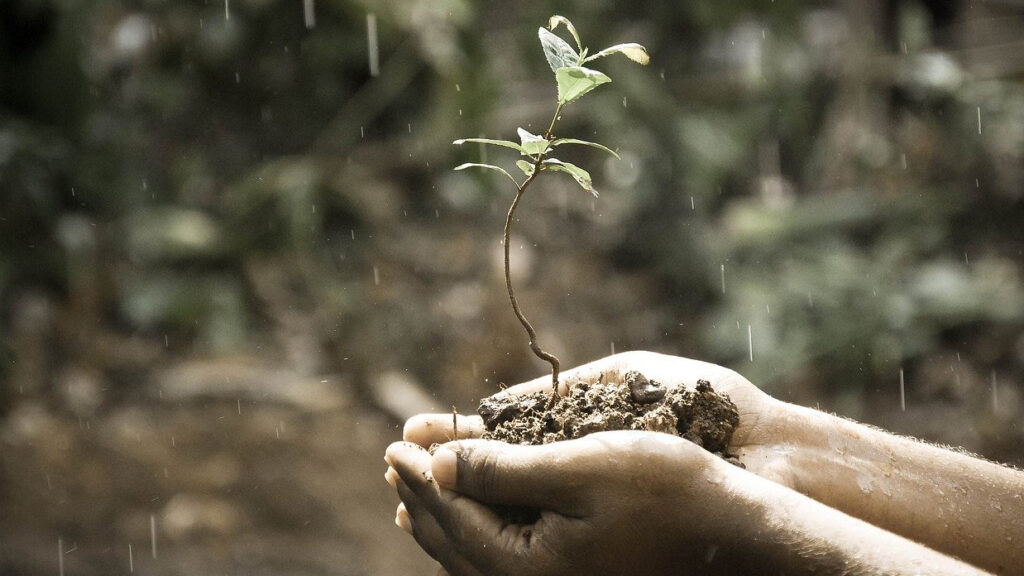Oregon Community Foundation: Partnership and Collaboration Delivers Big Impact to COVID Response and Recovery

In mid-March, as the scope and gravity of the COVID-19 pandemic unfolded, Oregon Community Foundation (OCF) moved nearly 100% of our staff to remote workplaces at the very moment our work increased in urgency and complexity. The pace of change and dramatic shift in service delivery is something none of us had ever experienced.
I have been humbled by the rapid, generous and community-centered response from so many who looked to Oregon Community Foundation (OCF) for information, partnership and support. OCF’s work has always been rooted in collaboration and partnership, notably with many private and family foundations in Oregon. As a statewide community foundation we have worked for more than 45 years to build trusted relationships with donors, volunteers, and our philanthropic partners—a strong network of colleagues who help us stay current with immediate and long-term needs in rural, urban and suburban communities.
Collaboration with an Equity Focus
This pandemic crystallized our most vital purpose—to quickly mobilize and deploy resources to the most vulnerable Oregonians. Working in tandem with a broad and diverse coalition of many current and new partners in philanthropy, business and community, we activated discretionary dollars, donor-advised funds and pooled community funds that currently total more than $14.3 million in donations, with grants of $13.3 million to 508 nonprofits across the state.
We recognize that this pandemic is only widening the deep disparities that cause suffering for the most vulnerable in our state: communities of color, individuals who experience poverty, disabilities, or homelessness, children, and other vulnerable populations. Since the start of this crisis, we have been working non-stop to mobilize and deploy flexible resources where and when they are critically needed, focusing most on Oregon’s most vulnerable populations.
We streamlined our application process to ensure flexible and accessible funding for organizations at the front lines of responding to the coronavirus outbreak. Immediate hot spots surfaced for basic needs and services, childcare, school closures, social isolation, jobs and the economy and health.
In one month we received more requests for funding than we typically receive in a year—more than 1,000 applications totaling nearly $70 million.
The need is great—far greater than philanthropy alone can address, but we are working collaboratively across funding partners and sectors to amplify our collective impact.
Partnerships for Greater Impact
Many read about the Oregon Community Recovery Fund, noting the ability to pool resources to help create a bigger impact. Some private and family foundations shared our interest in allowing current grantees more flexibility to use restricted grants for their most pressing needs, and to provide general operating support.
Colleagues from other family foundations appreciated having access to our shared online nonprofit proposals, to ease the burden of nonprofits applying for funding in multiple avenues, during a time of crisis. Within days, three separate family foundations awarded grants of more than $300,000 from the shared applications. I’ve heard from colleagues around the state who have shared the link with local funding partners. These were all new partnerships, some new relationships and others working with us in a different way that we had before.
At the behest of local and state government officials, we launched the Oregon Small Business Stabilization Fund to support nonprofit organizations in Oregon that provide loans or grants to small businesses particularly affected by the outbreak of COVID-19. A blend of public, private and OCF discretionary dollars were quickly matched through private foundations and donor advised funds. An advisory committee comprised of funders and experts in this work are helping assess applications and making grants.
At the same time that many were focusing on emergency needs and basic services, we were in conversation with funders who saw and felt the impact on arts and culture organizations. A group of private foundations, family foundations and OCF staff developed a framework for collaborative grantmaking, and we launched the Oregon Arts and Culture Recovery Fund. The partnership pools funds and shares applications to support organizations that serve disproportionately impacted communities, organizations that do not have access to loans, lines of credit or temporarily restricted endowments, or serve as a hub or facilitator for small organizations, unincorporated groups and individual artists.
Oregonians Step Up
This crisis has reaffirmed what I have always seen at OCF. Oregonians are generous. Virtual “town halls” bring us together to share needs and approaches to address inequities. We are learning every day from grantees, our donors, our volunteer Leadership Councils and our board, and from our funding partners in the state. There is much uncertainty ahead, yet we see so much possibility in our work and new ways of working together with long-standing partners and new ones. This is an opportunity for philanthropy to continue its great practices of sharing and listening to our community’s needs—and living a mission that is more important than ever as we respond, recover and rebuild. We are here to improve the lives of all Oregonians through the power of philanthropy.
The views and opinions expressed in individual blog posts are those of the author(s) and do not necessarily reflect the official policy or position of the National Center for Family Philanthropy.
